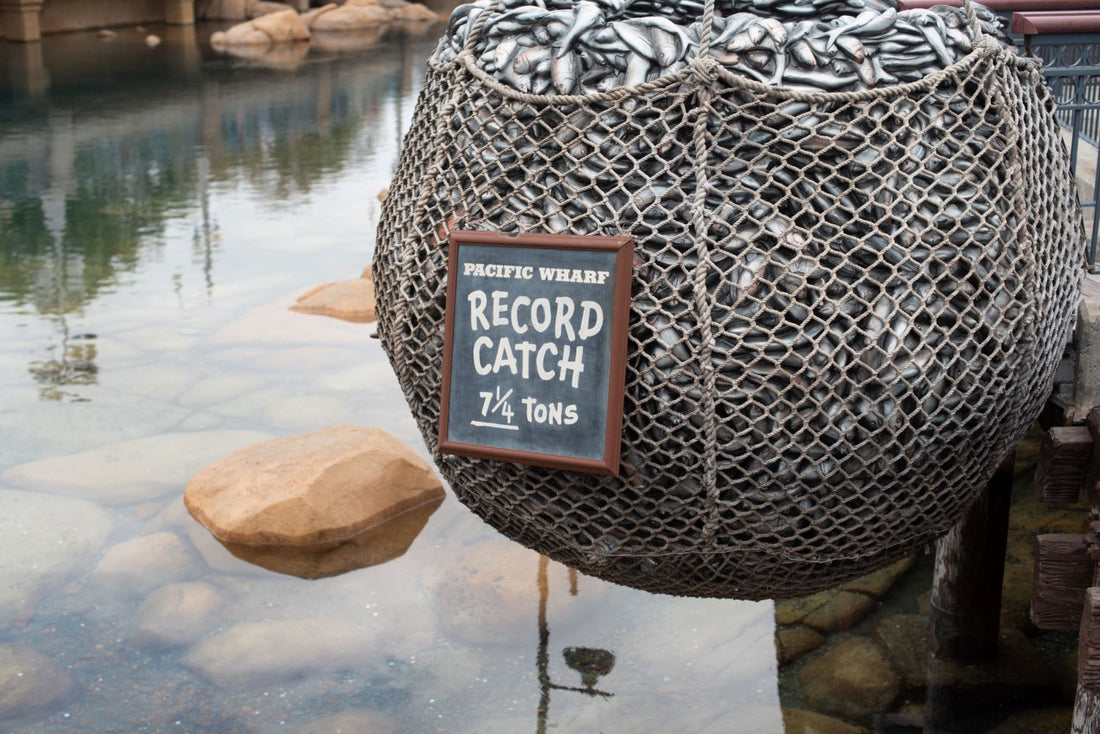
How overfishing affects ecosystem?
Share
Do you know the date of World Ocean Day? We mentioned a word “overfishing” in the last blog. In this blog, we are going to take a deeper understanding of what overfishing is and how it affects our ecosystem.
What is the definition of overfishing?
Fish stocks are overfished when too many fish are caught and there are not enough adults to reproduce and maintain healthy populations. Overfishing is not confined to the oceans; it can occur in any type of water body, regardless of if it is a lake, river, or basin. It is a manifestation of resource exhaustion and can decrease holistic biological stock levels. Overfishing significantly affects biodiversity and thus alters ecosystems.

What leads to overfishing?
1.Mismanaged fisheries
While the negative impact of overfishing at both economic and environmental dimensions is well aware, it continues unabated due to poor governance and management of fisheries. Fishing regulations on the high seas are inadequate and existing regulations are not usually enforced.
2.Fishing is a vital part of many cultures
A lot of people believe that fishermen like us are only small-scale anglers and do not affect the quality of the waters or even the ecosystem. But fishing had already become an essential part of many cultures. Species like salmon and trout are the favorites of anglers. This tends to disrupt the ecosystem of local waters, thus emitting shock waves and even impacting microbes such as plankton. These microorganisms are the basis of the ecosystem in local waters and are responsible for the production of oxygen. With a lack of natural enemies, microorganisms like phytoplankton grow wildly, leading to the production of toxic chemical compounds by harmful algorithms.
How overfishing affects ecosystem?
Overfishing has changed the food chain. If a particular species becomes extinct due to overfishing, animals that are reliant on that species as a food source may be exposed to starvation, or may turn to eat other sorts of fish, which will change the whole ecological system and the food chain. Because each of these species has an essential role to play in sustaining the well-being of the places they inhabit.
A fishing approach called "bottom trawling" will scrape the bottom, which is devastating to sponges, cays, and other creatures making up the habitat for marine life. This damage destroys the ecological system's innate function.
Herbivorous fish is usually caught when using nets to collect fish on cay reefs. Having an abundance of fish living on cays will keep the reef healthy. If overfished, then there is less marine life on the reef, which means that cays are more vulnerable to extreme weather conditions and climate change, such as increased water temperature that causes the cays to die, due to water circulation and thus damage to the ecosystem.
How to solve this problem?
Increased scientific awareness and education - Fisheries, retailers and consumers need to be conscious of the true costs associated with such large-scale consumption of marine species. A lot of people don't realize the lasting devastation that overfishing creates to our seas, marine life and vital submerged ecosystems.
Regulation and rectification- Fisheries are in need of being regulated and adhering to standards designed to do as little injury and damage as possible. Retailers and consumers have to be aware of those guidelines and hold fisheries accountable. Practices in extended-line fishing, bottom dragging and dynamite fishing have to be controlled, if not prohibited altogether.
After the science of overfishing, we return to the first question in the opening paragraph, do you know what’s the date of World Oceans Day? It’s June 8th.
